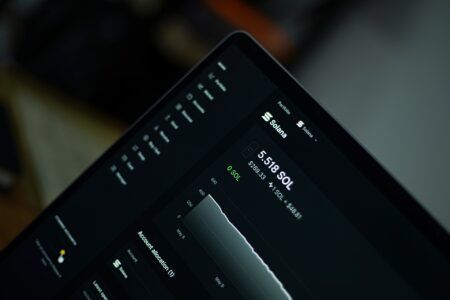Cryptocurrency wallet and exchange service Coinbase, which helps merchants accept cryptocurrency payments, reportedly blocked Wikileaks Shop, the merchandise arm of international non-profit whistleblowing organization Wikileaks, “without notice or explanation.”
According to a Tweet published by the official account of Wikileaks Shop, Coinbase sent the organization a statement revealing that it is a “regulated Money Services business under FinCEN,” and that as such it had to implement regulatory compliance mechanisms.
Coinbase’s statement added that, upon careful review, it believes Wikileaks Shop’s account was violating its terms of service.
ANNOUNCE: Coinbase has blocked the official @WikiLeaks shop from its platform without notice or explanation. You can continue to donate #Bitcoin to WikiLeaks at https://t.co/lvhoyhlqUa. #Coinbase #DefendWL #Cryptocurrency #Ethereum #BitcoinCash #ReconnectJulian pic.twitter.com/4BSS023OOk
— WikiLeaks Shop (@WikiLeaksShop) April 21, 2018
Coinbase’s move is notable, as Wikileaks uses its shop to sell merchandise and acquire funds to keep on doing what it does, as traditional payment processors, including Visa, Mastercard, and PayPal all prohibited donations to the whistleblowing organization after it made public thousands of classified documents.
All of the shop’s proceeds go to WikiLeaks’ operations. Although Coinbase suspended its account, it’s still able to accept payments in various cryptocurrencies, including Dash, Bitcoin Cash, Dogecoin, Ethereum, NEO, Monero, and ZCash, thanks to Coinpayments.net.
In response to Coinbase’s move, Wikileaks called for a “global blockade” against the company, as it now sees it as an “unfit member of the crypto community.” It may be seen as unfit because, as BTC advocate Andreas M. Antonopoulos explained, Coinbase “repeated history” by cutting of Wikileaks’ revenue steam, just like other payment processors did.
WikiLeaks will call for a global blockade of Coinbase next week as an unfit member of the crypto community. Coinbase, a large Californian Bitcoin processor, responding to a concealed influence, has blocked the entirely harmless @WikiLeaksShop in a decision approved by management. https://t.co/PAldF8b12P
— WikiLeaks (@wikileaks) April 21, 2018
As Antonopoulos points out, a lot of people got into bitcoin because of the initial embargo, as the flagship cryptocurrency is a peer-to-peer, censorship resistant currency, out of which no organization or individual can be cut off from.
Coinbase’s blockade comes at a time in which the Democratic National Committee is launching a lawsuit against Wikileaks, Russia, and the Trump presidential election campaign over alleged collusion to influence the results of the 2016 presidential election. In response, WikiLeaks asked for donations to counter-sue, arguing that it never lost a publishing case.
Last year, WikiLeaks leader Julian Assange used the social media platform to publicly thank the US government for forcing the organization to use bitcoin to survive the banking embargo it faced. After accepting bitcoin, it saw a 50,000 percent return, which prompted it to further call on donors to use cryptocurrencies.








